The Association of University Presses members have long published scholarly works that contribute to understanding even the most complex or disturbing current events. Now that the results of the U.S. presidential election are clear—and because the future path is not—we know that books, journal articles, booklists, and commentary from your expert authors will continue to be essential, enlightening, and animating. Please consider the following curated reading list a jumping off point for future conversations and research.
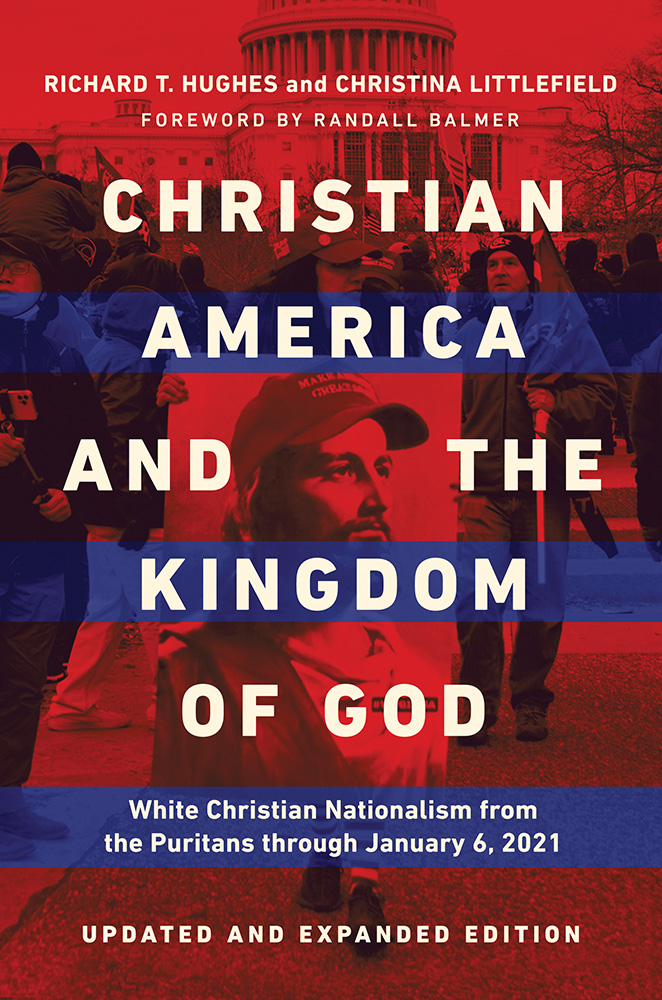
Richard T. Hughes and Christina Littlefield
Updated and Expanded Edition
Foreword by Randall Balmer
A timely new edition of the acclaimed work, Christian America and the Kingdom of God spotlights how the centuries-long pursuit of a Christian America has bred an aggressive white Christian nationalism that twists faith, unleashes unchristian behavior, and threatens the nation.
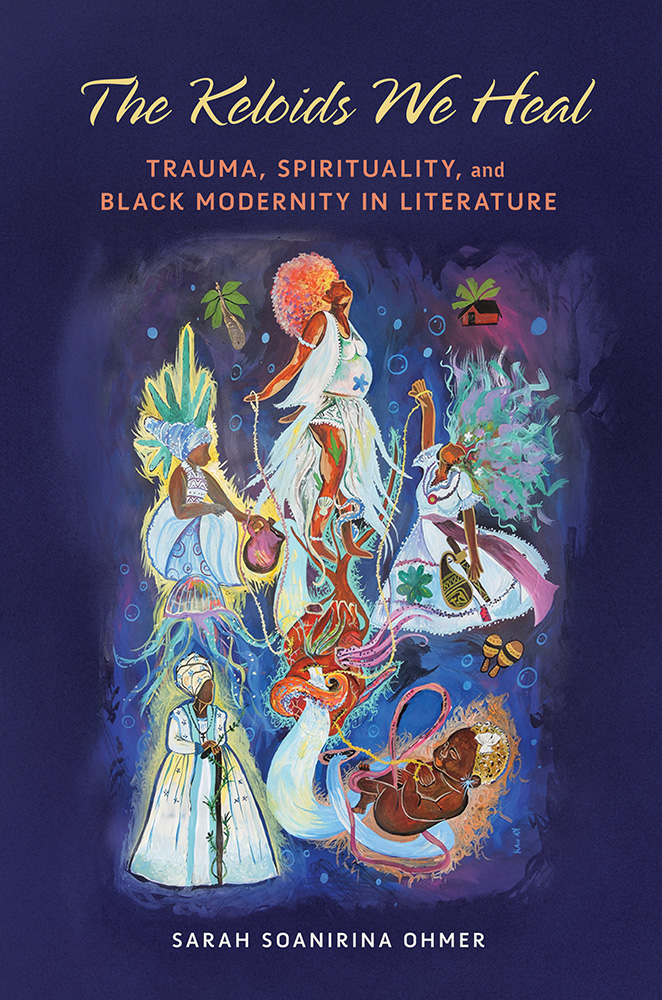
The Keloids We Heal: Trauma, Spirituality, and Black Modernity in Literature
Sarah Soanirina Ohmer
The corporeal and spiritual healing in literature by women of colors can be seen to redefine modern thought and printed text. Sarah Soanirina Ohmer traces the impact of colonization and enslavement on Black women and Black women’s contributions to colonial, nineteenth, and twentieth century literature in the US, Brazil, and West Indies.
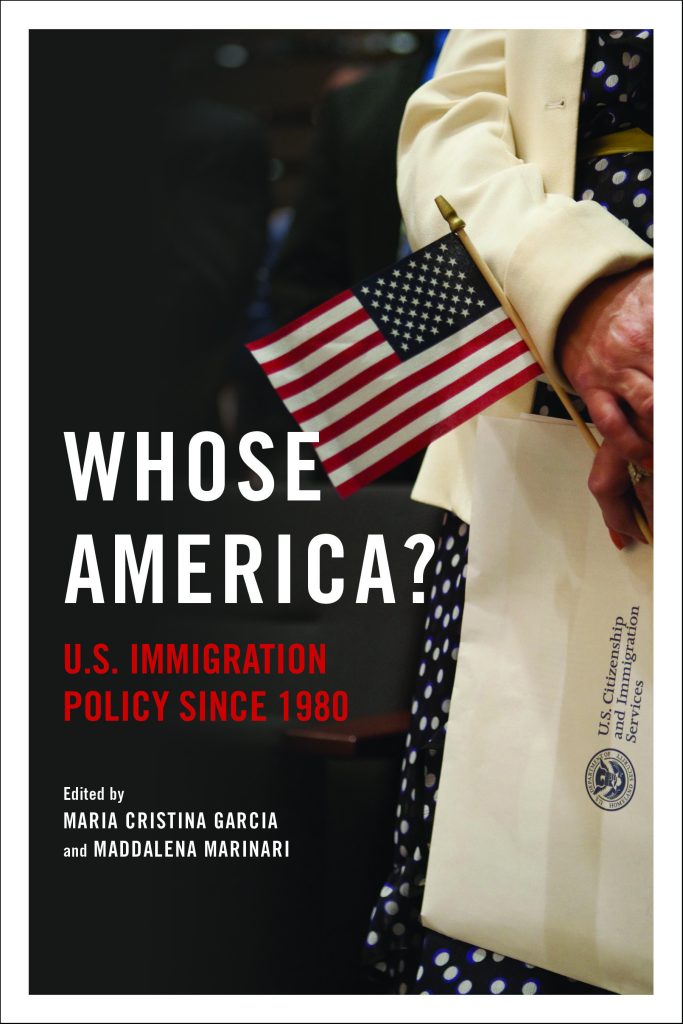
Whose America?: U.S. Immigration Policy since 1980
Edited by Maria Cristina Garcia and Maddalena Marinari
Up-to-date yet rooted in history, Whose America? provides a sophisticated account of recent immigration policy while mapping the ideological struggle to answer an essential question: which people have the right to make America their home or refuge?
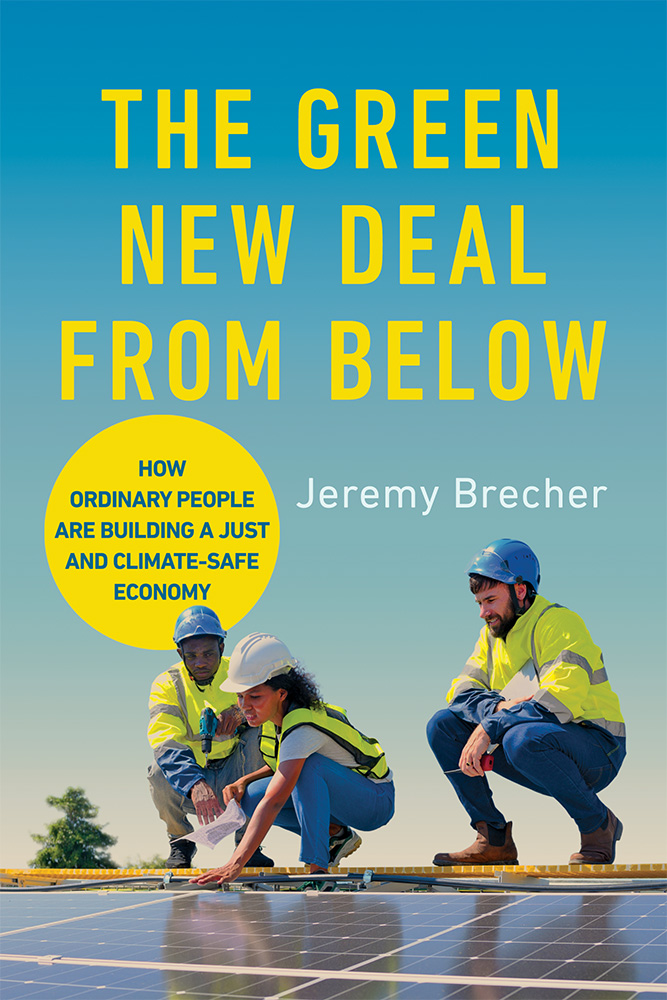
The Green New Deal from Below: How Ordinary People Are Building a Just and Climate-Safe Economy
Jeremy Brecher
A call for hope and a better tomorrow, The Green New Deal from Below offers a blueprint for reconstructing society on new principles to avoid catastrophic climate change.
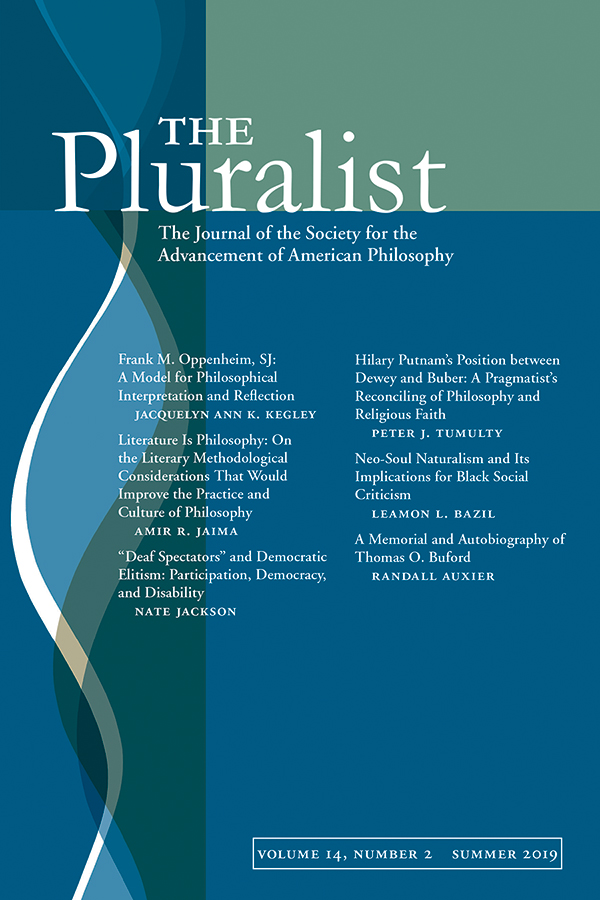
“’Deaf Spectators’” and Democratic Elitism: Participation, Democracy, and Disability” by Nate Jackson
People with disabilities are often diminished as members of the public, a fact corroborated by astonishingly low participation rates in political activities. Instead, the interests of individuals with disabilities are often interpreted and represented in public deliberation by caretakers and supposed experts.
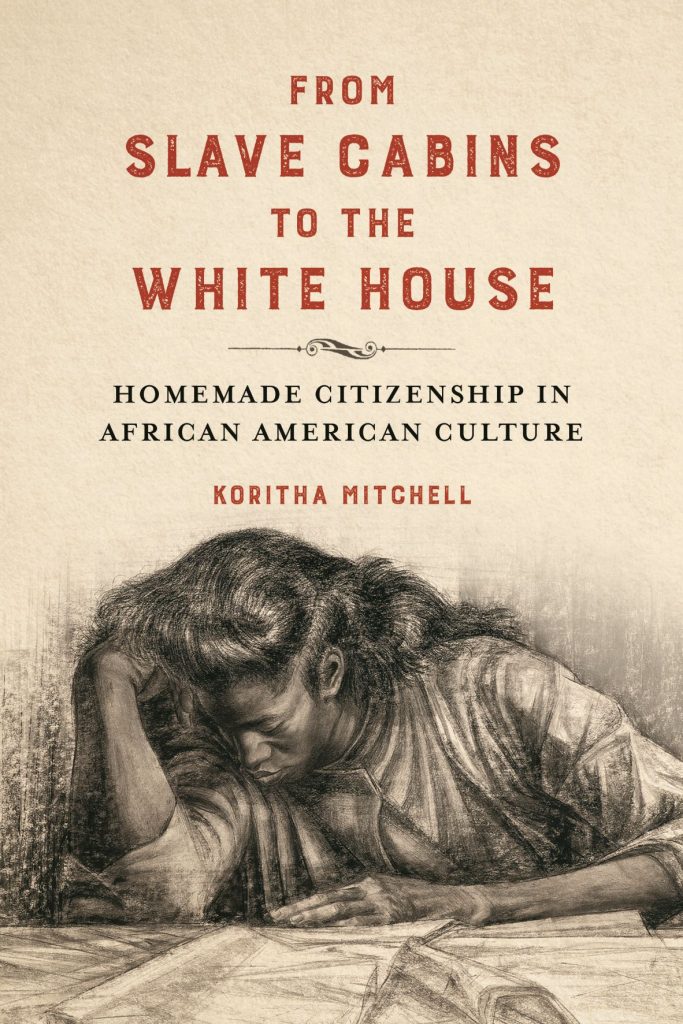
From Slave Cabins to the White House: Homemade Citizenship in African American Culture
Koritha Mitchell
Powerful and provocative, From Slave Cabins to the White House illuminates the links between African American women’s homemaking and citizenship in history and across literature.
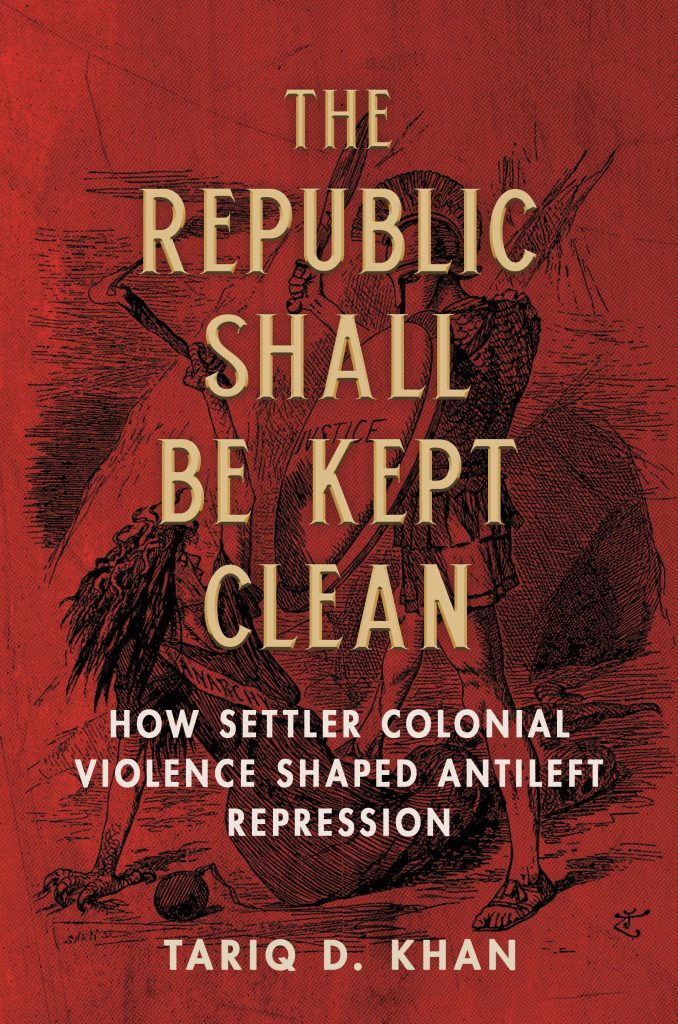
The Republic Shall Be Kept Clean: How Settler Colonial Violence Shaped Antileft Repression
Tariq D. Khan
Original and boldly argued, The Republic Shall Be Kept Clean offers an enlightening new history with relevance for our own time.
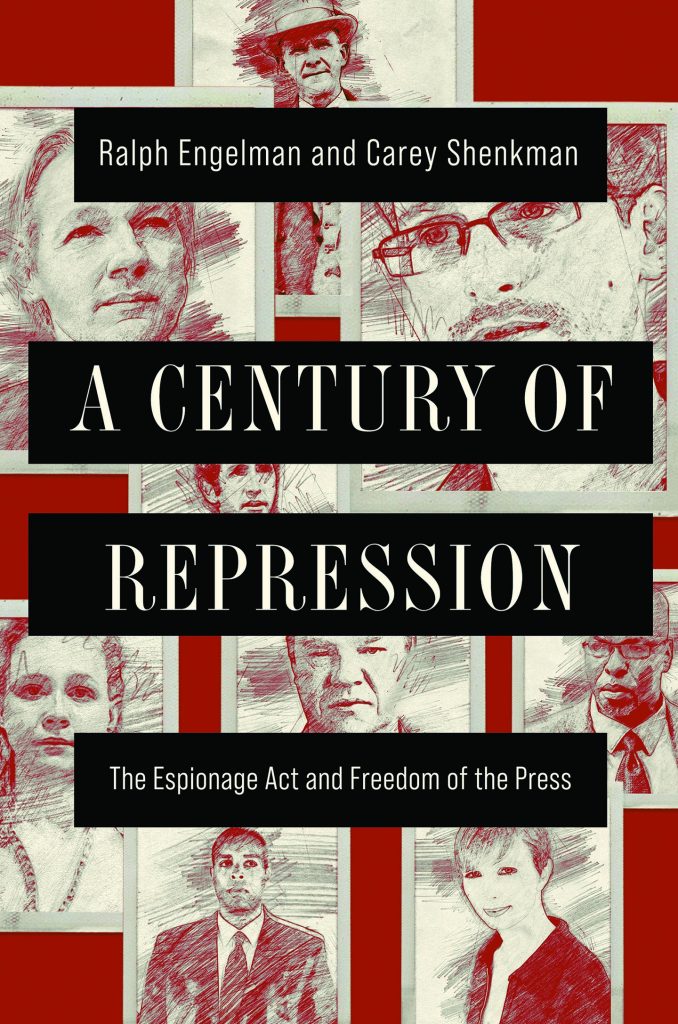
A Century of Repression: The Espionage Act and Freedom of the Press
Ralph Engelman and Carey Shenkman
A Century of Repression offers an unprecedented and panoramic history of the use of the Espionage Act of 1917 as the most important yet least understood law threatening freedom of the press in modern American history. It details government use of the Act to control information about U.S. military and foreign policy during the two World Wars, the Cold War, and the War on Terror.
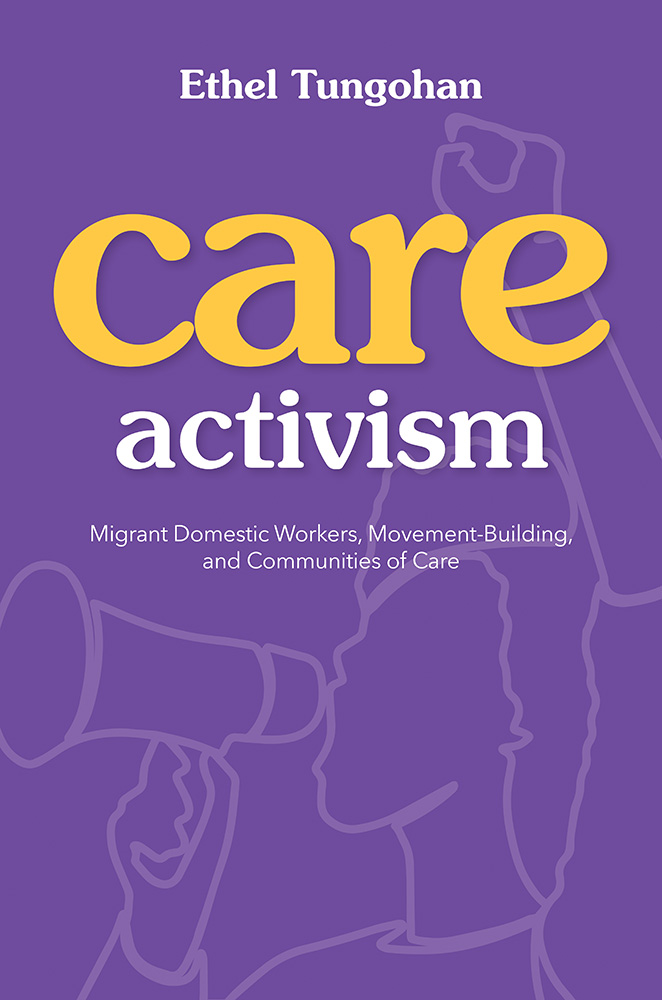
Care Activism: Migrant Domestic Workers, Movement-Building, and Communities of Care
Ethel Tungohan
Care activism challenges the stereotype of downtrodden migrant caregivers by showing that care workers have distinct ways of caring for themselves, for each other, and for the larger transnational community of care workers and their families. Tungohan illuminates how the goals and desires of migrant care worker activists goes beyond political considerations like policy changes and overturning power structures.
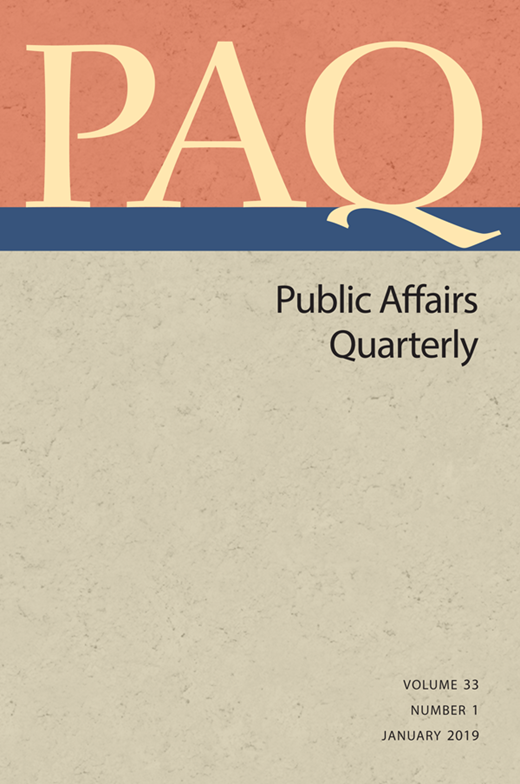
“Flip-Flopping in a Representative Democracy” by Jorn Sonderholm
In a representative democracy, can a member of a legislature legitimately flip-flop and vote in accordance with the majority view on Issue when she—prior to getting knowledge, through a referendum result, of what the majority view is on Issue—has defended and recommended to voters a view that is logically inconsistent with the majority view?
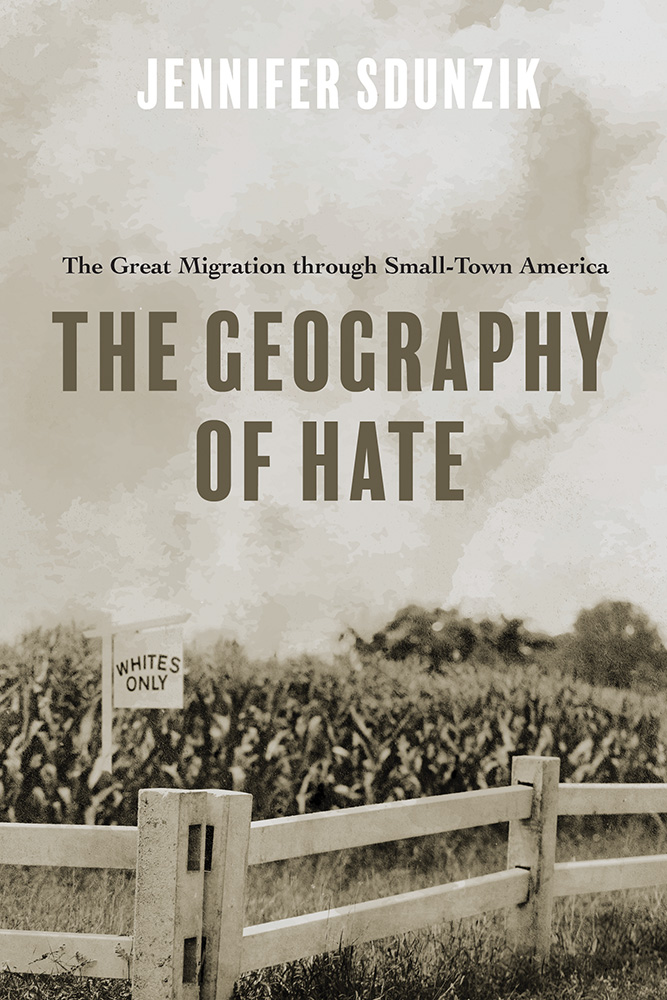
The Geography of Hate: The Great Migration through Small-Town America
Jennifer Sdunzik
An innovative challenge to myth and perceived wisdom, The Geography of Hate reveals the socioeconomic, political, and cultural forces that prevailed in midwestern towns and helps explain the systemic racism and endemic nativism that remain entrenched in American life.
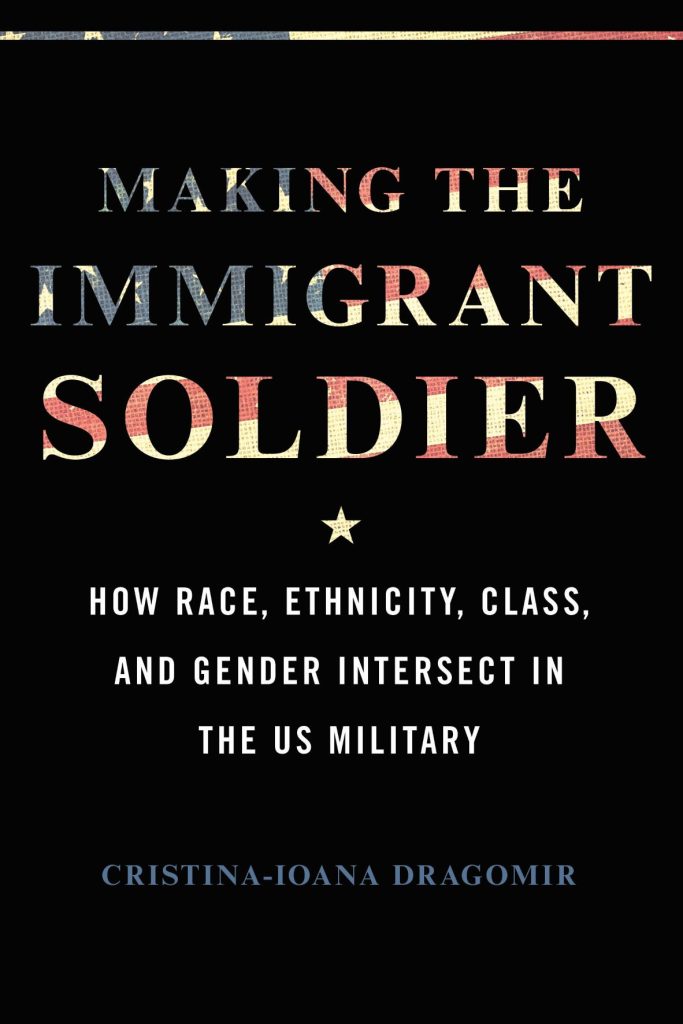
Making the Immigrant Soldier: How Race, Ethnicity, Class, and Gender Intersect in the US Military
Cristina-Ioana Dragomir
A compelling union of analysis and rich storytelling, Making the Immigrant Soldier traces the complexities of serving in the military in order to pursue the American dream.

Marching Dykes, Liberated Sluts, and Concerned Mothers: Women Transforming Public Space
Elizabeth Currans
Elizabeth Currans blends feminist, queer, and critical race theory with performance studies, political theory, and geography to explore the outcomes and cultural relevance of public protest. Drawing on observation, interviews, and archival and published sources, Currans shows why and how women utilize public protest as a method of participating in contemporary political and cultural dialogues.
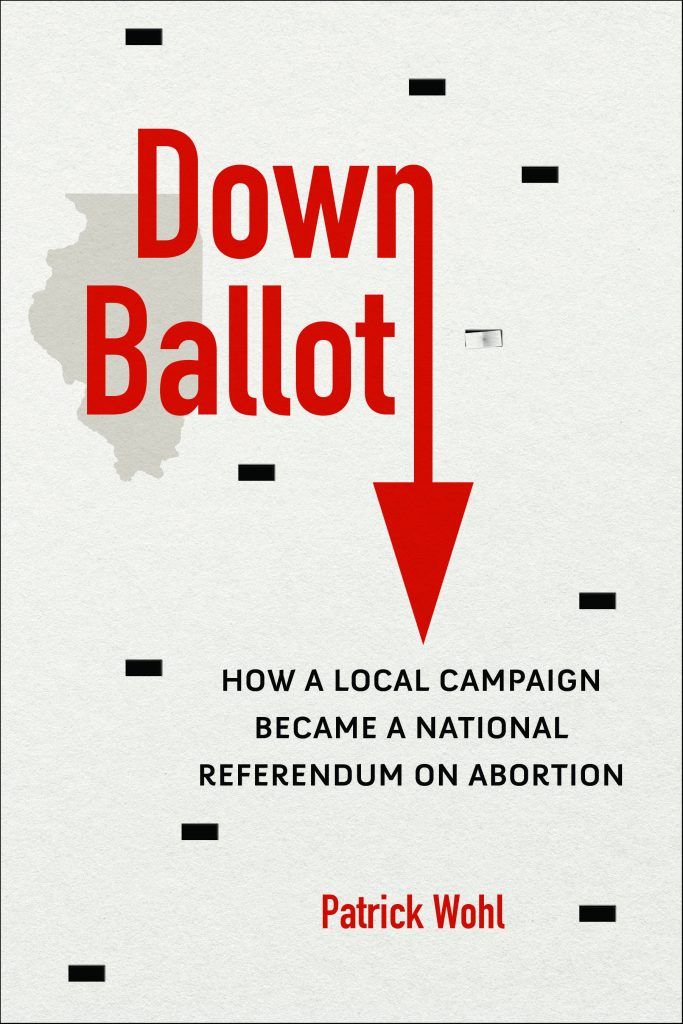
Down Ballot: How a Local Campaign Became a National Referendum on Abortion
Patrick Wohl
In 1990, a suburban Chicago race for the Republican Party nomination for state representative between Penny Pullen and Rosemary Mulligan unexpectedly became a national proxy battle over abortion in the United States. But the hard-fought primary also illustrated the overlooked importance of down-ballot contests in America’s culture wars.
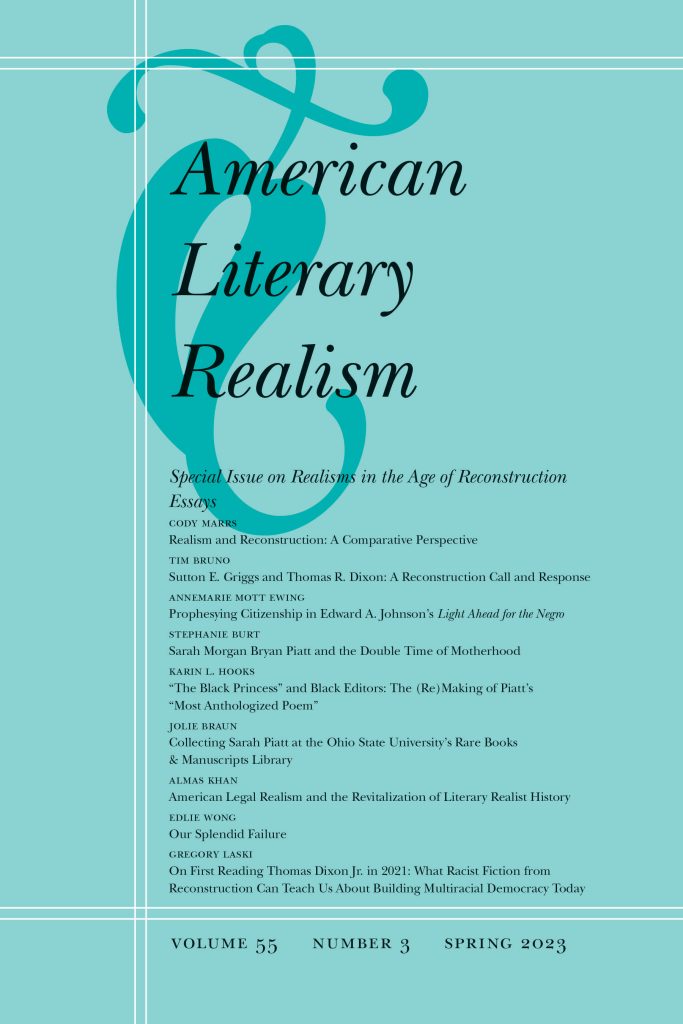
“On First Reading Thomas Dixon Jr. in 2021: What Racist Fiction from Reconstruction Can Teach Us About Building Multiracial Democracy Today” by Gregory Laski
If his ideas weren’t still so relevant more than a century later, Dixon surely would be better left to lie in the fictional grave that Griggs dug for him decades in advance of his actual death in 1946. But with the ongoing efforts to regulate what children learn about America in public schools, and state legislation designed to make it more difficult for people of color to vote, Dixon remains a detestable but necessary figure to engage. For he recognized, even as he ruled impossible, the conditions that a thriving multiracial democracy demands.
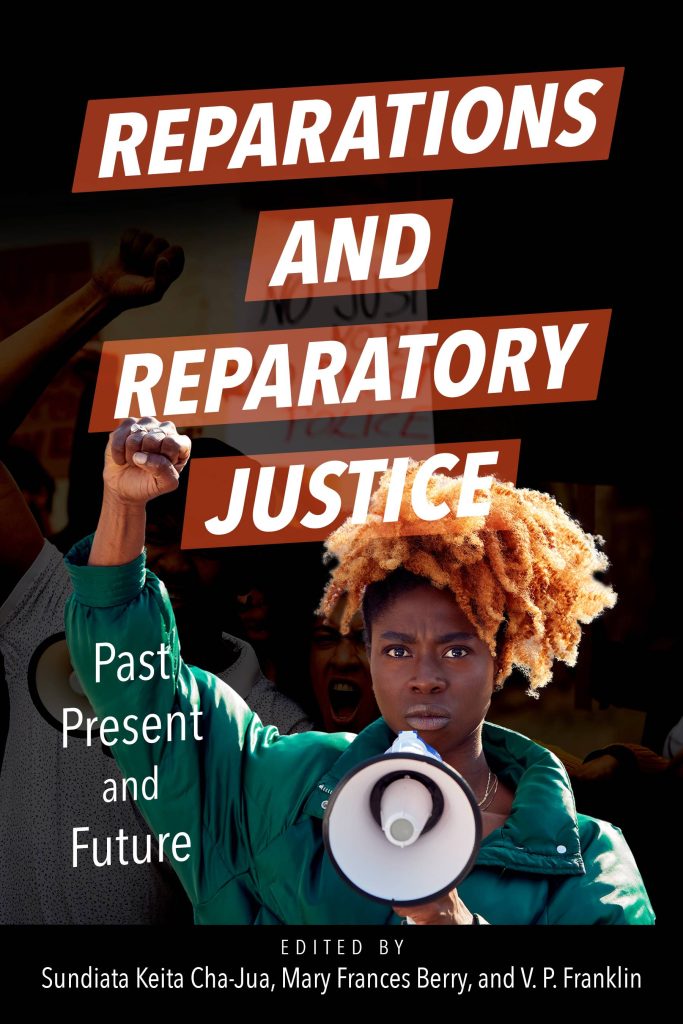
Reparations and Reparatory Justice: Past, Present, and Future
Edited by Sundiata Keita Cha-Jua, Mary Frances Berry, and V. P. Franklin
Groundbreaking and innovative, Reparations and Reparatory Justice offers a multifaceted resource to anyone wishing to explore a defining moral issue of our time.
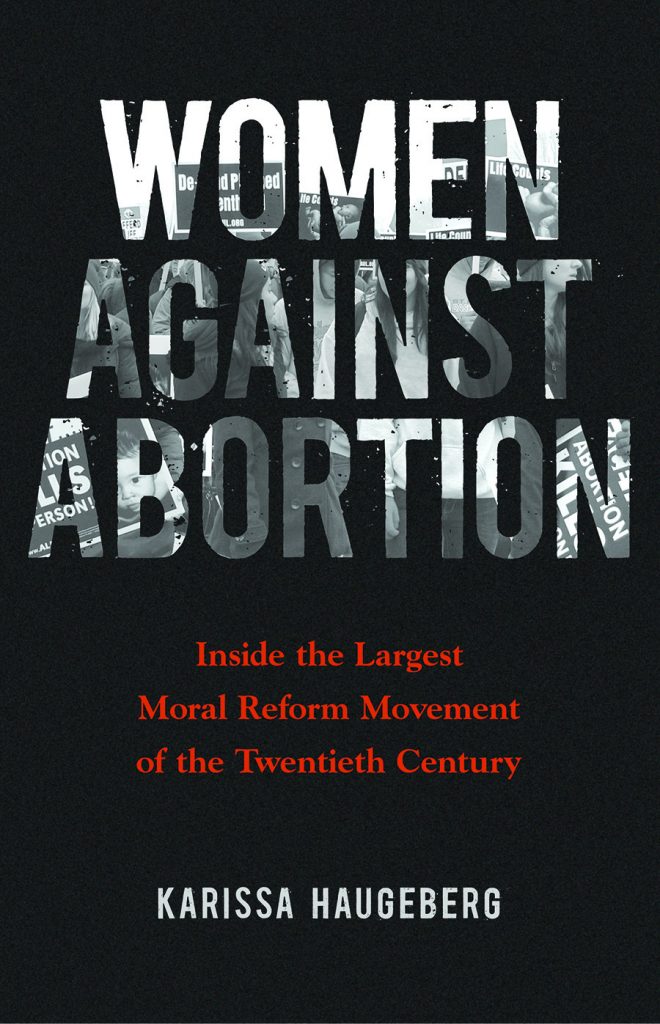
Women against Abortion: Inside the Largest Moral Reform Movement of the Twentieth Century
Karissa Haugeberg
A balanced treatment of an explosive topic, Women against Abortion is an overdue portrait of the foot soldiers behind a potent American cause.
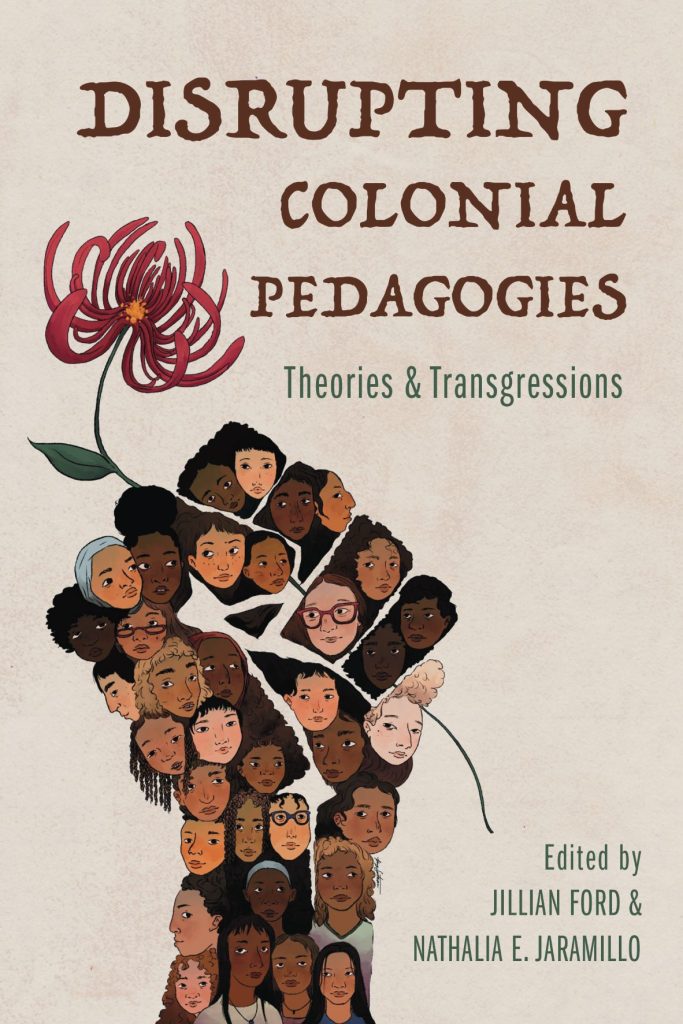
Disrupting Colonial Pedagogies: Theories and Transgressions
Edited by Jillian Ford and Nathalia E. Jaramillo
Powerful and interdisciplinary, Disrupting Colonial Pedagogies challenges colonialism and its influence on education to advance freer and more just forms of knowledge making.
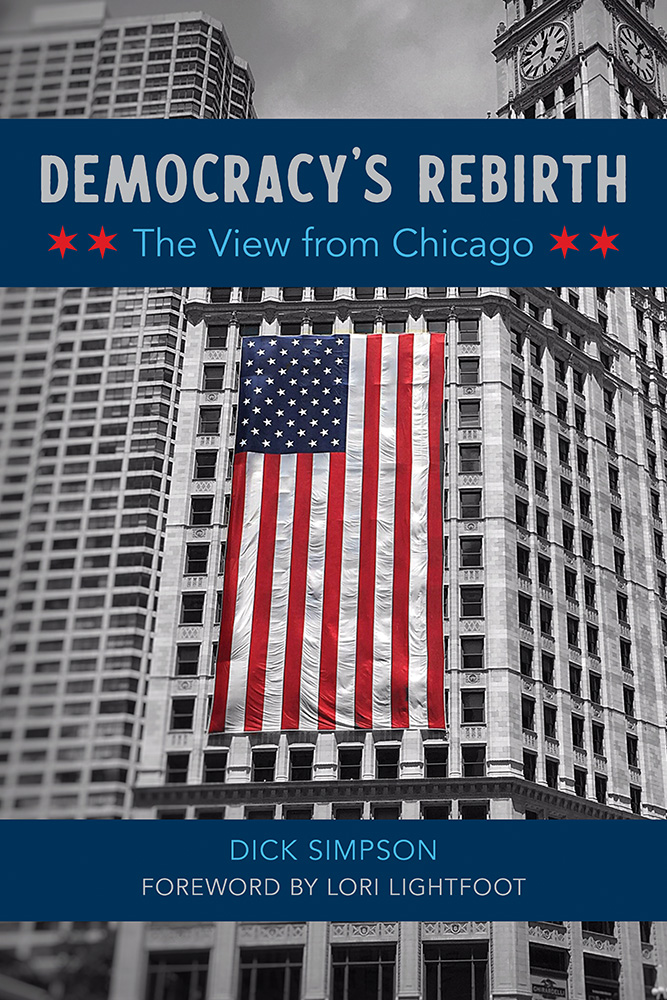
Democracy’s Rebirth: The View from Chicago
Dick Simpson
Foreword by Lori Lightfoot
Dick Simpson draws upon his fifty-year career as a legislator, campaign strategist, and government advisor to examine the challenges confronting Americans in their struggle to build the United States as a multiracial, multiethnic democracy. Using Chicago as an example, Simpson examines how the political, racial, economic, and social inequalities dividing the nation play out in our neighborhoods and cities.
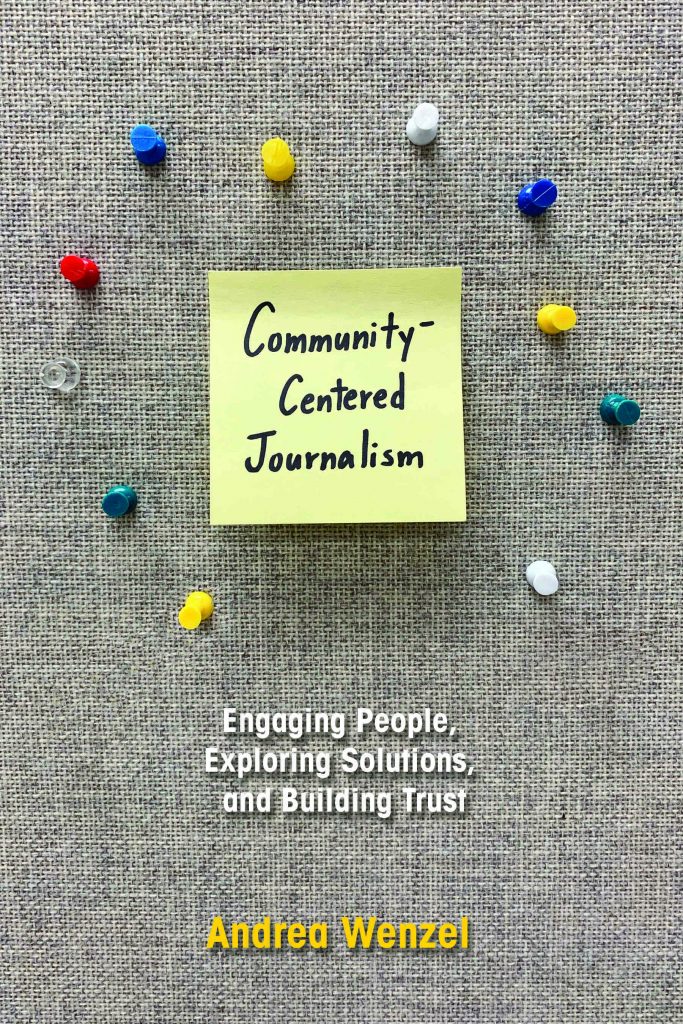
Community-Centered Journalism: Engaging People, Exploring Solutions, and Building Trust
Andrea Wenzel
Contemporary journalism faces a crisis of trust that threatens the institution and may imperil democracy itself. Critics and experts see a renewed commitment to local journalism as one solution. But a lasting restoration of public trust requires a different kind of local journalism than is often imagined, one that engages with and shares power among all sectors of a community.
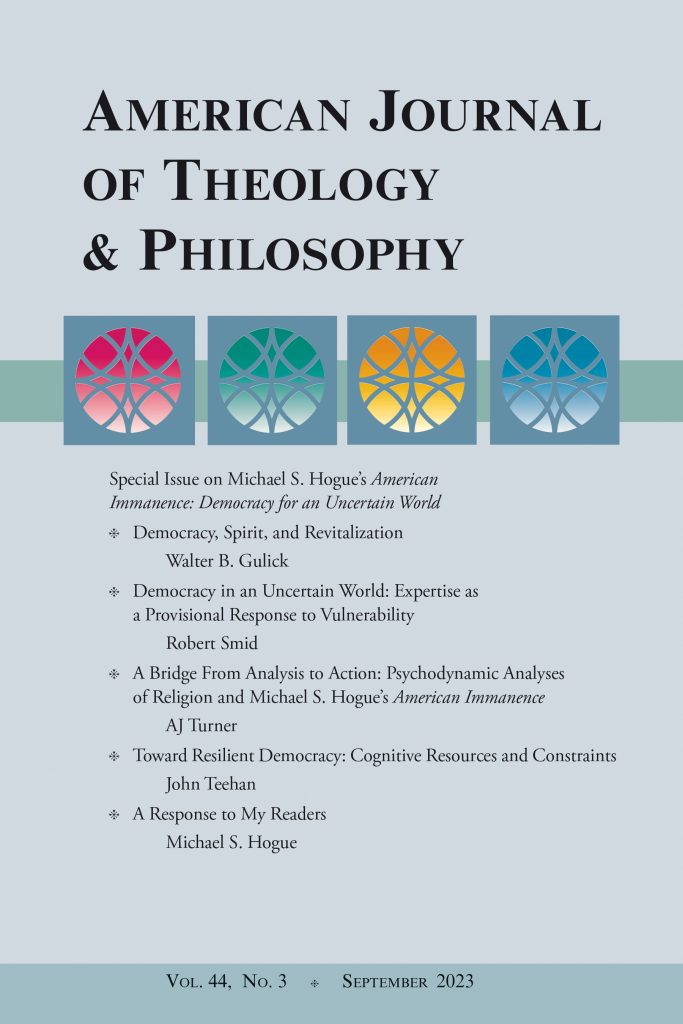
American Journal of Theology & Philosophy
Special Issue on Michael S. Hogue’s American Immanence: Democracy for an Uncertain World
In response to Hogue’s book, each contributor asks, in good pragmatist fashion, how the theopolitics of resilient democracy would work in practice.

